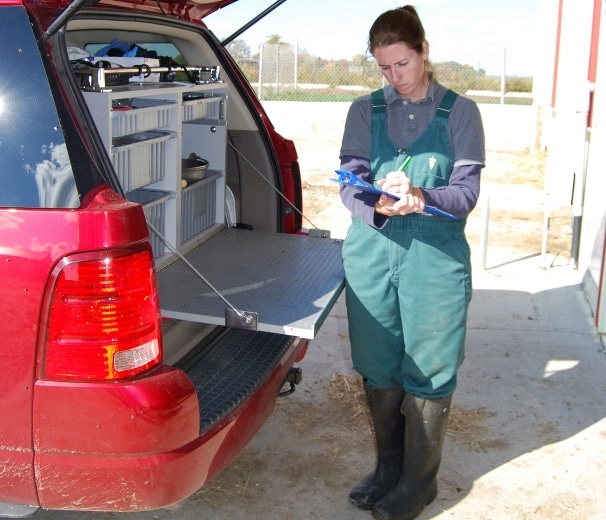March 26, 2014

Pork producers and their veterinarians should put a porcine epidemic diarrhea (PEDV) battle plan in place before the disease strikes, says University of Missouri Extension swine specialist Tim Safranski.
He suggests producers establish a veterinary-client-patient relationship (VCPR) if they do not already have one in place. The VCPR can help save time, pigs and money when signs of the disease appear, according to Safranski. Under the VCPR, the veterinarian assumes responsibility for diagnosing and treating the animals, and producers agree to follow the veterinarian's instructions.
Don't wait until the first signs of an outbreak. By then, it's too late, Safranski says. A plan takes several days to create, if the disease is already moving through the operation before the discussions start happening, those could be days when more pigs die.
The U.S. Department of Agriculture releases its next quarterly report on pork losses due to PEDV on Friday, March 28, but recent reports show that the disease is growing in 28 states.
"It's time to bring a veterinarian into the conversation," Safranski says. "Be ready. And if you already have a veterinarian, make sure you have a VCPR."
A veterinarian develops an operation-specific plan based upon the animals, facilities and protocols. The veterinarian also reviews procedures and develops an internal biosecurity plan and a plan to follow if PEDV appears.
"If you implement the plan when you get it (PEDV), you will lose four weeks of production," Safranski says. "If you have to develop the plan first, it will last much longer."
Safranski says one advantage of the plan is that it can help prepare a strategy for managing the sows that would lose their litters during to a PEDV outbreak; if the sows are not nursing piglets, they will not return to estrus on-schedule. That situation can also be managed if the farm is ready from the start, he says.
PEDV generally takes its greatest toll on pigs aged three weeks or younger. The virus causes severe diarrhea and vomiting. Mortality is almost always 100% in nursing pigs. PEDV is mostly transmitted through manure carried by pigs, boots, clothing and vehicles. It does not infect humans and there is no cure at this time.
You May Also Like



